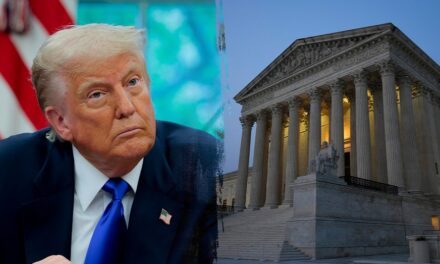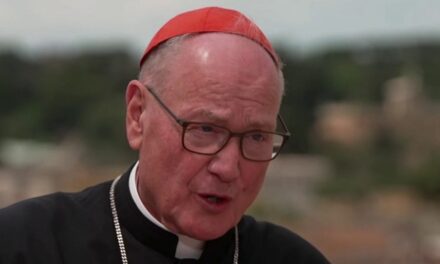In a recent episode of his show, HBO’s “Real Time with Bill Maher,” the host delved deep into the ongoing political implications of Andrew Cuomo’s nursing home scandal. This controversial chapter in the former governor’s career has raised eyebrows and led to speculation regarding its possible effects on his aspirations for a political comeback, particularly in the context of the New York City mayoral race.
Maher, known for his unflinching commentary on contemporary political issues, highlighted the profound public sentiment surrounding the nursing home fiasco that emerged during the COVID-19 pandemic. Back in 2020, Cuomo faced fierce criticism for his administration’s decision to send recovering COVID-19 patients back to nursing homes, a move that many believe exacerbated the crisis in these vulnerable facilities. As the fallout intensified, calls for accountability and transparency became a chorus echoed across the political spectrum.
The nursing home scandal resulted in an investigation by the New York State Attorney General, which revealed underreporting of COVID-19 related deaths in these facilities. This revelation not only tarnished Cuomo’s reputation but also sparked widespread outrage among families who lost loved ones during this tumultuous time. The political ramifications of this scandal pose serious questions regarding Cuomo’s ability to restore trust within the electorate.
On his show, Maher pointed out that the electorate is unlikely to forget the tragic outcomes associated with Cuomo’s decisions. As political luminaries and opinion makers navigate the landscape in New York, the impacts of this scandal cannot be understated. Maher raised concerns about whether voters in New York City would be willing to support a candidate with a record marred by a scandal that resulted in numerous fatalities.
Though Cuomo has expressed intentions to run for mayor of New York City, Maher’s commentary suggests that the nursing home issue may be an albatross around his neck throughout the campaign. Political analysts and insiders agree that, in a city deeply affected by the pandemic, the ramifications of Cuomo’s actions may serve as a stumbling block he cannot easily overcome.
Furthermore, Maher emphasized the importance of voters’ emotions in shaping their political choices. With the nursing home scandal having left deep scars in many families, there is likely a prevailing sense of distrust that may follow Cuomo as he seeks to navigate a complex political landscape. This emotional resonance can profoundly affect voter behavior, creating a dynamic where policy expertise and political history take a backseat to personal feelings of loss and betrayal.
Bill Maher’s reflections come at a time when the New York City mayoral race is heating up, with several candidates already expressing their intent to run. Given the competitive nature of the election, any lingering fallout from Cuomo’s tumultuous record may end up benefiting his opponents, who could leverage these issues to rally support against him.
The potential impact of the nursing home scandal on Cuomo’s campaign raises critical questions about political accountability in the public health arena. As we continue to hear voices from various stakeholders in the health and political sectors, there remains an ongoing discourse about the decisions made during the pandemic that directly affected vulnerable populations, such as the elderly in nursing homes. The emphasis on accountability has led to calls for better transparency in future health policies to prevent similar tragedies.
As the landscape around the New York City mayoral race continues to evolve, it is evident that Cuomo’s political resurrection will not be an easy feat. The shadow of the nursing home scandal looms large, and the former governor must navigate not only his image but also the complex emotional landscape of a city still grappling with the consequences of the pandemic.
For many New Yorkers, the decision to support Cuomo could hinge on a range of factors beyond just the nursing home scandal. Issues such as crime rates, housing affordability, economic recovery post-COVID-19, and education are also at the forefront of voters’ minds. While the nursing home incident is significant, it is likely that voters will assess a broader array of considerations as they prepare to make an electoral choice.
At the same time, the mayoral bid will test Cuomo’s political acumen and ability to pivot in the face of adversity. The former governor, known for his often combative style, has shown a resilience that could play a role in how he addresses past mistakes and reorients his narrative moving forward. Campaign strategists will need to tread carefully when conveying Cuomo’s vision for New York City while acknowledging the hurt that he has caused during his tenure.
As the race unfolds, Bill Maher’s commentary serves as a reminder that healing in the political realm often takes time, especially when lives are lost and trust is fractured. Successful candidates will likely be those who not only articulate their policy positions effectively but also show an understanding of, and sensitivity to, the emotional weight that past missteps carry.
In conclusion, while Andrew Cuomo harbors ambitions for a political comeback through a bid for the New York City mayoralty, the path is fraught with challenges. As illustrated by Bill Maher’s analysis, the nursing home scandal represents a defining moment in Cuomo’s political narrative and has the potential to weigh heavily on his campaign. The outcome of this mayoral race will reflect not only the immediate political climate but also the long-standing social impacts of the COVID-19 crisis on New York, shaping voter sentiment as they head to the polls.
































